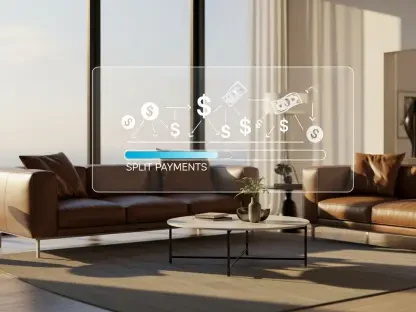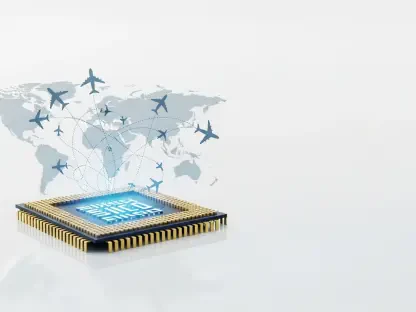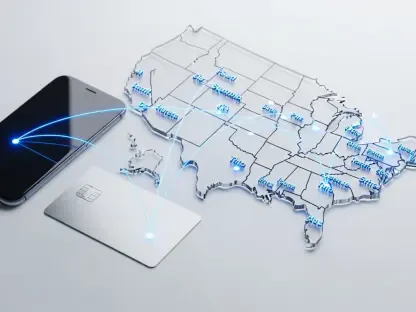The financial technology (fintech) revolution heralds a new era of commerce. Fintech payment processors, with their state-of-the-art software and sophisticated payment interfaces, are at the forefront of this change, profoundly altering the way financial transactions are performed. These innovative services address the needs of both merchants and consumers by streamlining payment processes, enhancing efficiency, and often reducing costs.Merchants benefit from the automation and simplification of financial transactions. This technological leap offers them access to a broader market, as fintech solutions often come equipped with features that facilitate global transactions. Moreover, they gain real-time data analytics, which are crucial for informed decision-making and growth strategies.For consumers, the impact is evident in the form of convenience and security. Fintech enables easier and faster payments with a level of security that traditional methods are hard-pressed to match. The integration of biometrics, encryption, and blockchain technology ensures that personal financial data remains secure, enhancing consumer trust.The rise of fintech payment processors signifies not just a shift in technology but a fundamental evolution in the financial ecosystem. The convenience, efficiency, and security they bring to the table have set a new standard in commerce, driving innovation across the industry and changing our expectations of what it means to make and receive payments in a digitally driven world.
The Rise of Fintech in Payment Processing
The expansion of the fintech sector has been nothing short of phenomenal, directly affecting the payment processing ecosystem’s evolution. Fintech companies have grown exponentially, thanks to their ability to identify and address market needs with nimble and sophisticated payment solutions. From small startups to juggernauts in finance, these processors utilize data analytics, AI, and blockchain to provide services that are not just innovative but also responsive to consumer and business demands. This pivot towards tech-centric payment facilitation has set a foundation for a future where efficiency, speed, and convenience are paramount in financial transactions.These enterprises have not only carved a space for themselves within payment processing but also forced traditional institutions to rethink and often remodel their approaches to stay competitive. As a result, the digitalization of payments is occurring at a hypertensive pace, offering versatility and connectivity that cater to a global audience and dissolve geographical constraints, while focusing on the intrinsic needs of modern commerce.
Technological Innovations Fueling the Industry
Behind the seamless consumer experience in modern transactions are sophisticated software solutions and backend processing systems that work tirelessly. Fintechs harness the power of cloud computing, APIs, and machine learning to facilitate transactions that are increasingly automated and secure. These infrastructural backbones are the unsung heroes, enabling real-time processing and multi-currency support, crucial for businesses operating on a global scale.The advancement does not end with software, as hardware integrations continue to evolve. Fintechs are redefining point-of-sale systems, enabling mobile and contactless payments, and even integrating biometric verification methods to revolutionize the payment space. Such innovations are key in creating a flexible and robust environment for a variety of payment methods, effectively democratizing access to sophisticated transactional technology for a wide range of businesses.
Catering to the New-age Consumer
The surge in ‘buy now, pay later’ (BNPL) options has become a key driver in the growth of e-commerce. Fintech payment processors, tapping into this trend, offer flexible payment plans that resonate with the fiscal habits of a younger demographic. By enabling customers to stagger payments without incurring the traditional credit checks or interests, these services improve affordability and accessibility, influencing purchasing behaviors and, by extension, the e-commerce landscape.In the personal finance domain, peer-to-peer (P2P) payment platforms have revolutionized the way individuals settle shared expenses. These platforms eliminate the need for cash or traditional banking transactions, providing a simple, secure, and immediate solution for splitting bills, rent, or even settling casual debts. The prominence of P2P platforms underscores fintech’s role in fostering an environment where financial interactions are not merely transactions, but experiences curated to modern lifestyles.
Blockchain and Cryptocurrency Integration
Blockchain technology’s advent has given payment processors an edge in terms of security and efficiency. By retaining a decentralized ledger of transactions, blockchain allows for transparent and tamper-proof processing, inspiring confidence amongst users. Some fintech firms are stepping into the realm of cryptocurrency, positioning themselves to handle these digital assets as seamlessly as traditional currencies. This agile adaptation underscores the forward-thinking approach of fintech, gradually mainstreaming digital currencies and integrating them into everyday transactions.Companies like Circle and Ripple are notable examples, pioneering the use of blockchain and cryptocurrency to catalyze a significant shift in payment processing. Such integration enables shorter transfer times across borders and reductions in transaction fees, fostering an environment where the movement of digital money knows no bounds, all while maintaining stringent security measures.
Niche Specialization in Payment Processing
Delving into the spectrum of payment processing, it’s apparent that different fintech firms have carved out their niches, targeting specific market segments with tailored services. Companies such as Adyen focus on offering omnichannel payment solutions to cater to a wide range of businesses, from small local shops to sprawling multinationals. On the other hand, platforms like Wingspan streamline payment solutions for freelancers and gig workers, addressing the unique challenges faced by the modern independent workforce.By finding their specializations, these payment processors go beyond generic solutions, offering a refined approach that satisfies distinct market needs. This fine-tuning of services allows for a higher degree of personalization and efficiency, enabling businesses and individuals to engage in the financial ecosystem in a manner that aligns with their specific operational dynamics and preferences.









